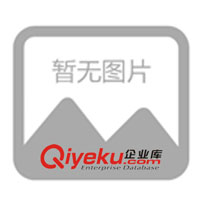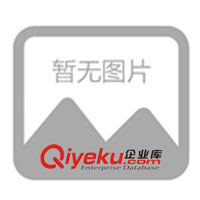HONG KONG — As stock market stories go, the listing of Shenzhen Hepalink Pharmaceutical in China came with a few special ingredients: two low-key founders who have been turned into multibillionaires overnight; a stake held by Goldman Sachs; and pigs’ intestines.
On Thursday, in their first day of trade on the Shenzhen stock exchange, the heparin supplier’s shares soared 18.3 percent, valuing the company at about 70 billion renminbi, or $10 billion. The initial value and the sharp rise Thursday recalled the heady days of the world before Lehman Brothers collapsed, and the gains bucked another weak session for Asian stock markets.
The listing has most likely catapulted Li Li and his wife, Tan Li, to the top of China’s rich list: the two hold about 288 million shares of the company they founded in 1998, according to the state-run news agency Xinhua. At a closing price of 175.2 renminbi, their stake is worth about 50.4 billion renminbi, or $7.4 billion.
This easily tops the estimated fortune of Wang Chuanfu, the owner of the car and battery manufacturer BYD. He had been China’s wealthiest man, with an estimated fortune of $5.1 billion, according to data compiled by Hurun Report, a research and publishing house based in Shanghai.
Hepalink’s successful debut on the stock exchange has also created a tidy profit — at least on paper — for Goldman Sachs, the embattled U.S. investment bank.
In 2007, Goldman bought a 12.5 percent stake in Hepalink for $4.9 million, Bloomberg News said, citing the I.P.O. prospectus. Goldman’s stake of 45 million shares is now worth more than 200 times as much. Goldman declined to comment.
It is a rare piece of good news for the banking giant, which has been accused in a civil lawsuit by the U.S. Securities and Exchange Commission of defrauding investors. The bank is also under investigation for possible criminal activity. Goldman has denied any wrongdoing.
Little is known about Mr. and Mrs. Li, who have, in effect, turned pig guts into a fortune.
In a country where outstanding wealth can attract the unwelcome attention of the authorities, the two entrepreneurs-turned-billionaires have kept low profiles as their company has been readied for its market listing.
Hepalink declined requests for information or comment Thursday, but reports in the local news media have said the two were both born in 1964 and met when studying at Sichuan University, where they specialized in chemistry.
Hepalink’s main product is highly purified heparin, a substance made from the mucous membranes of the intestines of pigs. Heparin is a blood thinner used to prevent clots. The company claims to be the world’s biggest supplier of heparin products; its clients include a number of leading global pharmaceuticals companies.
Hepalink, with more than 500 employees, has seen stellar growth in recent years. Its net income for 2008 was 161.4 million renminbi, more than triple the 47.9 million renminbi posted for 2006.
Last year, net income and sales both soared fivefold, to 809 million renminbi and 2.2 billion renminbi, respectively, according to Bloomberg data.
Hepalink’s steep market value — even before the shares began trading — reflects buoyant global demand for pharmaceutical products and services, as populations in developing countries age and those in emerging nations become more affluent and able to spend on health care.
It also may reflect the fact that Hepalink claims it is the only Chinese heparin manufacture accredited by the U.S. Food and Drug Administration and the European Directorate for the Quality of Medicines and Healthcare.
But some analysts worried Thursday that the company’s stock value was overblown, especially given the jitters sweeping stock markets.
Investors in mainland China have been spooked by concerns that the economy was overheating and that the government would continue to clamp down on loan growth and on the booming property market. The Shanghai composite index, mainland China’s leading market gauge, dropped 4.1 percent Thursday and was down 16.4 percent so far this year.
In addition, heparin’s record in China has been clouded, though Hepalink was not involved. In 2008, contaminated heparin from 12 Chinese companies was found in at least 11 countries.
In China, the pig intestines are often cooked in unregulated family workshops.
A contaminant, identified as oversulfated chondroitin sulfate, slipped through the usual testing and was recognized only after more sophisticated tests were used.
The U.S. Food and Drug Administration has said that 149 deaths from allergic reactions were reported from people who took heparin from Jan. 1, 2007, to May 31, 2008.
Hepalink has said that its products and manufacturing processes, in contrast, are high quality. In a presentation last July, for example, the company said that its products had shown “excellent clinical results” in the United States for the past four years and that it had not received any complains.





